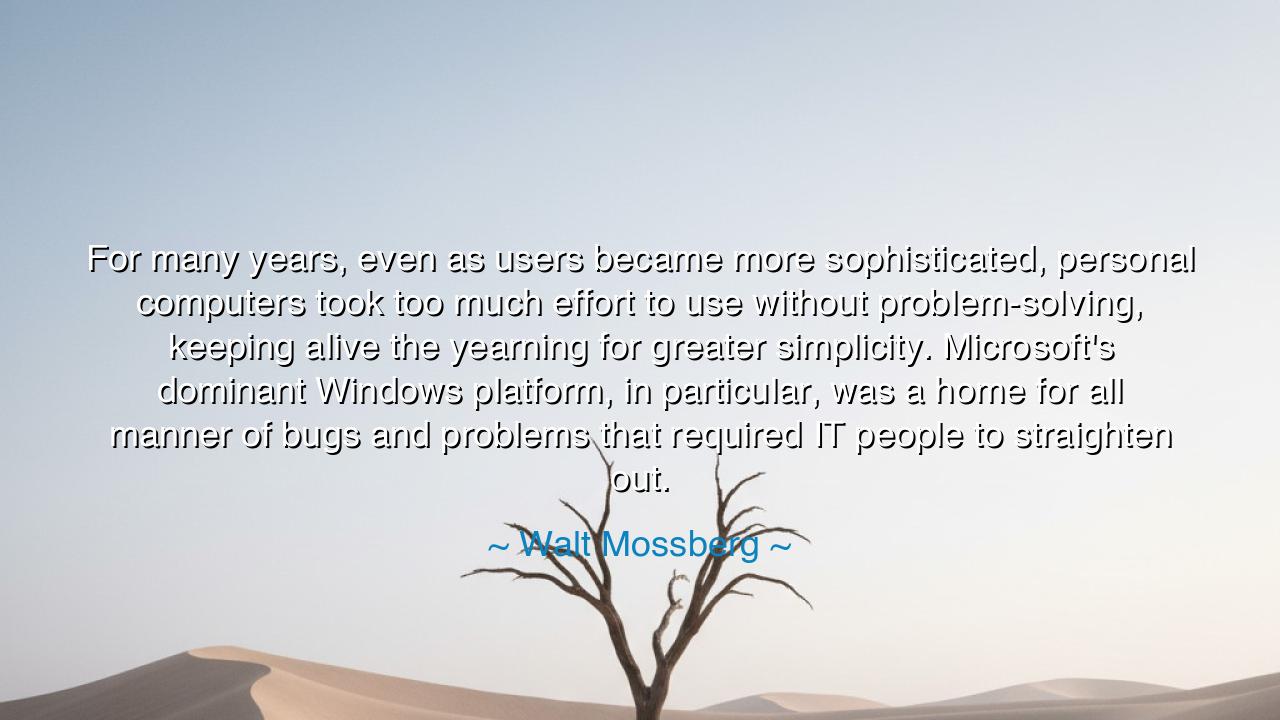
For many years, even as users became more sophisticated, personal
For many years, even as users became more sophisticated, personal computers took too much effort to use without problem-solving, keeping alive the yearning for greater simplicity. Microsoft's dominant Windows platform, in particular, was a home for all manner of bugs and problems that required IT people to straighten out.






In the thoughtful and discerning words of Walt Mossberg, the great chronicler of technology’s rise, we hear both lament and longing: “For many years, even as users became more sophisticated, personal computers took too much effort to use without problem-solving, keeping alive the yearning for greater simplicity. Microsoft’s dominant Windows platform, in particular, was a home for all manner of bugs and problems that required IT people to straighten out.” Beneath these words lies not merely a critique of software, but a meditation on the human relationship with technology — on our eternal struggle to make our tools serve us effortlessly, and on our yearning to find harmony between man and machine.
In the age of the ancients, craftsmen and thinkers alike sought to build tools that extended human ability without burdening the spirit. The blacksmith shaped his hammer to fit the hand, the scribe sharpened his reed so the words might flow like breath upon the parchment. Each creation, when perfected, became an extension of the maker — so natural, so seamless, that the boundary between tool and user disappeared. But as Mossberg observes, the personal computer, that modern marvel of intellect, became instead a labyrinth — a place of promise and frustration, where progress demanded patience and mastery of hidden rituals. In the pursuit of power, the beauty of simplicity was lost.
The origin of this quote lies in Mossberg’s decades as one of the most respected technology journalists of his time. For over thirty years, he guided the public through the turbulent sea of innovation, reviewing computers, software, and devices as they evolved from clunky machines into gateways of human potential. His statement recalls a time when computers were miracles that demanded submission — when even the skilled user could find themselves humbled by frozen screens, cryptic errors, and endless updates. Windows, dominant though it was, became a symbol of both achievement and imperfection: a world of possibility, yes, but one that required the constant labor of technicians, the modern healers of digital ills.
In his words, we hear not only criticism, but compassion — for he understood the yearning for greater simplicity, the deep human desire to make the complex elegant, the technical humane. It is the same longing that guided the builders of every age: to






AAdministratorAdministrator
Welcome, honored guests. Please leave a comment, we will respond soon